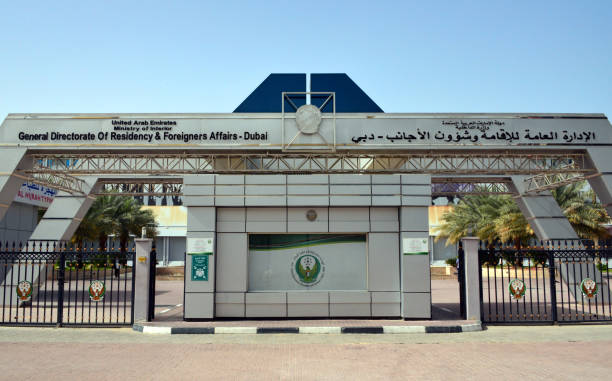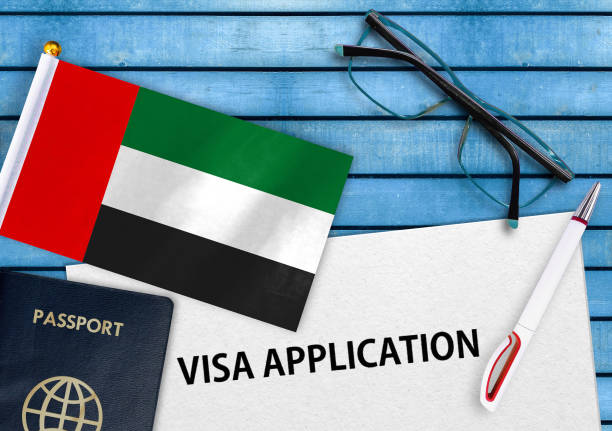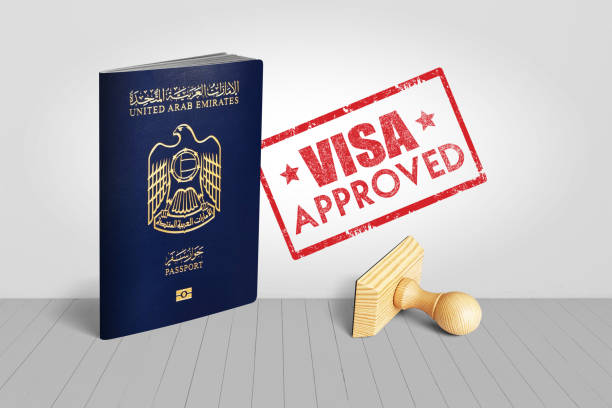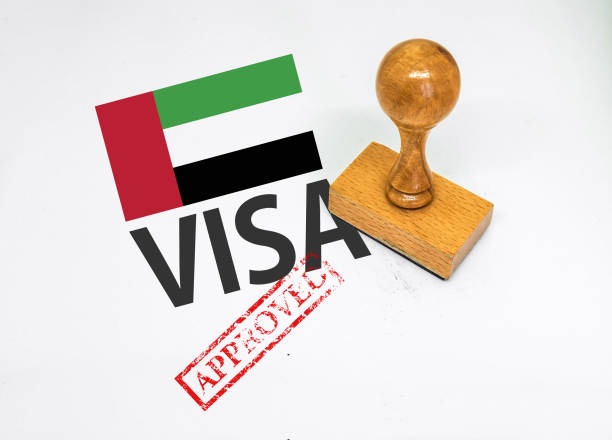Moving to the United Arab Emirates can be an exciting adventure, but the journey often begins with navigating the intricate web of visa procedures. The UAE, known for its vibrant culture, booming economy, and iconic skyline, attracts expatriates from around the globe. However, understanding and successfully navigating the UAE visa hurdles is crucial for a smooth transition into this dynamic country.
UAE Visa Hurdles for New Expats
Overcoming UAE Visa Hurdles for New Expats
Embarking on a journey to the United Arab Emirates as a new expatriate brings with it a unique set of challenges, especially when it comes to the intricacies of visa procedures. The process of obtaining the right documentation, from entry permits to residence visas, can often feel like navigating a complex maze for those unfamiliar with the system. In this guide, we delve into the specific UAE visa hurdles that new expats may encounter, offering insights and strategies to streamline the visa application process and ensure a seamless transition into life in the UAE. Whether you’re a prospective employee, entrepreneur, or trailing spouse, understanding and overcoming these UAE visa hurdles is a crucial step towards a successful relocation to this dynamic and thriving region.
Do I Need a Visa to Visit Dubai or Other Emirates?
Whether you require a UAE visa depends on your nationality. Some countries allow citizens to enter without a visa or provide one upon arrival. Others need to obtain a visa before traveling. Check the lists below to see if you need a UAE visa or if you are exempt.
| Country | Visa needed? | Country | Visa needed? |
|---|---|---|---|
| Andorra | Visa on arrival for up to 30 days | Mauritius | Visa on arrival for up to 30 days |
| Argentina | Visa free for up to 90 days | Mexico | Visa free for up to 180 days |
| Australia | Visa on arrival for up to 30 days | Monaco | Visa on arrival for up to 30 days |
| Bahamas | Visa on arrival for up to 90 days | Mongolia | Visa on arrival for up to 30 days |
| Bahrain | enter UAE with a passport or ID | Montenegro | Visa free for up to 90 days in any 180 day period |
| Barbados | Visa free for up to 90 days | Nauru | Visa free for up to 90 days |
| Brazil | Visa free for up to 90 days | New Zealand | Visa on arrival for up to 30 days |
| Brunei | Visa on arrival for up to 30 days | Norway | Visa free for up to 90 days in any 180 day period |
| Canada | Visa on arrival for up to 30 days | Oman | enter UAE with a passport or ID |
| Chile | Visa free for up to 90 days | Paraguay | Visa free for up to 90 days |
| China | Visa free for up to 30 days | Russia | Visa free for up to 90 days in any 180 day period |
| Costa Rica | Visa on arrival for up to 90 days | Saint Vincent and the Grenadines | Visa free for up to 90 days in any 180 day period |
| El Salvador | Visa on arrival for up to 90 days | San Marino | Visa on arrival for up to 30 days |
| EU member states (excluding the UK and Ireland) | Visa free for up to 90 days in any 180 day period | Saudi Arabia | enter UAE with a passport or ID |
| Honduras | Visa free for up to 90 days in any 180 day period | Serbia | Visa free for up to 90 days |
| Hong Kong | Visa on arrival for up to 30 days | Seychelles | Visa free for up to 90 days |
| Iceland | Visa free for up to 90 days in any 180 day period | Singapore | Visa on arrival for up to 30 days |
| Ireland | Visa on arrival for up to 30 days | Solomon Islands | Visa free for up to 90 days |
| Japan | Visa free for up to 30 days | South Korea | Visa on arrival for up to 90 days |
| Kazakhstan | Visa on arrival for up to 30 days | Switzerland | Visa free for up to 90 days in any 180 day period |
| Kuwait | enter UAE with a passport or ID | Ukraine | Visa free for up to 30 days |
| Liechtenstein | Visa free for up to 90 days in any 180 day period | United Kingdom | Visa on arrival for up to 30 days |
| Macau | Visa free for up to 30 days | United States | Visa on arrival for up to 30 days |
| Malaysia | Visa on arrival for up to 30 days | Uruguay | Visa free for up to 90 days |
| Maldives | Visa on arrival for up to 90 days | Vatican | Visa on arrival for up to 30 days |
Citizens holding diplomatic or service passports from the following countries are exempt from requiring a UAE tourist visa or qualify for a UAE Visa On Arrival:
| Albania | Algeria | Armenia |
| Azerbaijan | Belarus | Colombia |
| Congo | Cuba | Egypt |
| Equatorial Guinea | Georgia | Grenada |
| India | Indonesia | Liberia |
| Morocco | Rwanda | Saint Lucia |
| Serbia | Tonga | Tunisia |
| Turkey | Turkmenistan | Vanuatu |
| Vietnam | Burkina Faso* | Burundi* |
| Chad* | Congo DR* | Ethiopia* |
| Guinea* | Jordan* | Kyrgyzstan* |
| Mali* | Niger* | Senegal* |
| Uzbekistan* |
*Diplomatic passports only.
If your country is not listed above, citizens must obtain a UAE visa before traveling.
UAE Entry Permit
The UAE Entry Permit is the document you need if you require a visa to enter the country. Its validity depends on the purpose of your travel, and your sponsor must obtain it from the General Directorate of Residency and Foreigners Affairs (GDRFA) before your trip.
The duration of your stay in the UAE with an entry permit varies based on your travel purpose:
- For transit, you get an entry permit (transit visa) for up to 48 or 96 hours.
- If you’re visiting as a tourist, your entry permit is valid for up to 30 days (i.e., tourist visa).
- For employment purposes, your entry permit can last up to 60 days, and so on.
In essence, a tourist visa and an entry permit serve the same purpose.

Types of UAE Visas
The UAE offers four main types of visas:
UAE Tourist Visas: These are for tourism or short stays (less than 30 days) without employment or long-term residence intentions.
UAE Residence Visas: For foreigners looking to relocate, this includes Student, Work, Family, Retirement, and Dubai Digital Nomad Visas.
Long-Term Residence Visas (Investor Visa): Issued for 5-10 years, it doesn’t require a sponsor but demands a significant investment in the UAE.
UAE Transit Visas: For foreigners transiting through the UAE, valid for 48 or 96 hours.
UAE Residence Visa
If you’re planning to move to the UAE, you’ll need a Residence Visa. Before that, you must get an Entry Permit. Here’s the difference:
The UAE Residence Visa is necessary if you want to extend your stay beyond the days allowed by the Entry Permit. Your sponsor, who must meet GDRFA’s requirements, applies for your Residence Visa after you’re already in the UAE with an Entry Permit
UAE Visa Requirements
When applying for a tourist visa to the UAE, you’ll need several documents to support your application:
- Photocopies of your passport and your sponsor’s passport (with at least 6 months validity).
- Photocopy of relevant passport pages (original passport may not be needed in some cases).
- Passport-size photos meeting UAE visa requirements.
- If traveling alone as a female: No Objection Certificate (NOC) from your father or husband.
- Confirmed round-trip airline ticket or onward travel ticket.
- Proof of accommodation, such as your hotel reservation.
- Proof of purchased travel medical insurance for UAE.
- A letter stating the purpose and duration of your visit.
- Proof of legal residence in your country (visa or residence permit, if applicable).
- If you have a host:
- Proof of relationship to the host.
- Proof of host’s residential status (copy of UAE Resident Visa and/or Emirates ID).
- Proof of host’s financial status (certified copy of work contract or salary certificate).
- Proof of previous travels:
- Copies of entry and exit stamps for the UAE in the last year.
- Copies of visas to the USA, UK, Schengen Area, Canada, Russia, Australia, or New Zealand received in the past 5 years.
- Additional documents may include proof of financial status, current address, marriage certificate, and any other documents requested by relevant visa authorities in Dubai/UAE.
How to Apply for a UAE Visa?
Applying for a UAE visa is different from many countries. Here’s how:
No Overseas Embassies or Consulates: The UAE doesn’t issue visas through its embassies or consulates abroad.
Need a Sponsor: You can’t apply for a UAE Visa directly. You must have a sponsor in the UAE or use an authorized agency to apply on your behalf. This could be:
- A host or sponsor in the UAE.
- A licensed travel agency when purchasing your travel ticket. Ensure the agency is reputable and licensed.
- The hotel where you’ll stay in the UAE.
- Certain airlines like Etihad Airways, Emirates Airline, Fly Dubai, and Air Arabia if you’re flying with them.

Where to Apply for a UAE Visa?
You can submit your UAE visa application either online or in-person at the following places:
eChanel Portal (Online Only):
- Federal Authority for Identity and Citizenship – ICA manages this portal. Hosts, travel agencies, or sponsors can apply for a UAE Visa on your behalf.
General Directorate of Residency and Foreigners Affairs – GDRFA:
- Apply online or in-person through the GDRFA website.
GDRFA Websites in Each Emirate:
- Check the respective GDRFA websites for each emirate (Abu Dhabi, Dubai, Sharjah, Ajman, Ras Al Khaimah, Fujairah).
Mobile Apps:
- ICA’s eChanel portal has mobile apps for both Apple and Android devices.
Licensed Typing Centres:
- Your sponsor or host can also apply through licensed typing centres of the GDRFA in each emirate or through Amer centres in Dubai.”
UAE eVisa Application for GCC Residents
Residents of Gulf Cooperation Council (GCC) countries, including Bahrain, Kuwait, Oman, Qatar, Saudi Arabia, and the United Arab Emirates, are not exempt from visa requirements like GCC nationals. However, they enjoy a simplified online application process when traveling with GCC citizens.
If you’re a GCC resident, you can apply for a UAE visa through the following websites:
Once applied, your visa will be sent to the provided address. The UAE visa is initially valid for 30 days and can be extended for an additional 30 days.
Please note: If you’re a GCC resident traveling alone (not with a GCC national), you cannot apply through the online portal.
Duration of Stay in the UAE with a Visa
Once you get a UAE visa, you typically have around 60 days to enter the country. Upon entry, the duration of your stay in the UAE varies based on the purpose of your travel.
- Tourist Stay: Up to 30 days.
- Transit Stay: Up to 4 days.
- Employment Visa: Issued for a maximum of 2 months, during which you must either convert it into a Residence Visa or exit the country.
Can You Extend a UAE Visa?
Yes, you can extend most UAE visas or entry permits. Since 2018, you’re allowed two extensions, each for an additional 30 days, for a fee of AED 600. Make sure to apply for the extension before your current visa expires to avoid overstaying fines.
However, you cannot apply for a UAE visa extension if you fall into any of these categories:
- Visitor or tourist who is a resident of a GCC country.
- GCC resident accompanying a GCC national.
- Holder of a special entry permit.
- Holder of a 96-hour permit for special missions.

Extending UAE Residence Visas for Widows and Divorced Women
The UAE government provides a Residence Visa extension for divorced women or widows. This extension allows them and their children to stay in the country for an additional year, starting from the time of divorce or the death of their husbands. Importantly, this extension doesn’t require a sponsor.
To apply, they can use the websites or typing centres of the relevant General Directorate of Residency and Foreigners Affairs (GDRFA) in their Emirate of residence.
What Happens if You Overstay on a Tourist Visa in Dubai?
If you exceed the duration of your Dubai visa, you’ll be fined AED 100 for each day of overstay. To avoid this, it’s advisable to apply for a visa extension if you know you need to stay longer.
Can You Work in Dubai with a Tourist Visa?
No, you cannot. A tourist or visitor visa for the UAE doesn’t permit employment. If you wish to work, you must apply for a UAE Work Visa and Work Permit. Working without proper authorization, even if unpaid, can lead to deportation and fines
Conclusion
Embarking on a new chapter in the UAE is an exciting prospect, but understanding and navigating the visa process is crucial for a successful start. By comprehensively grasping the visa types, documentation requirements, and the sponsorship system, new expats can streamline the process and focus on embracing the rich culture and opportunities that the UAE has to offer. Remember, staying informed and seeking guidance when needed will pave the way for a smooth transition into your new life in the Emirates. Safe travels!

